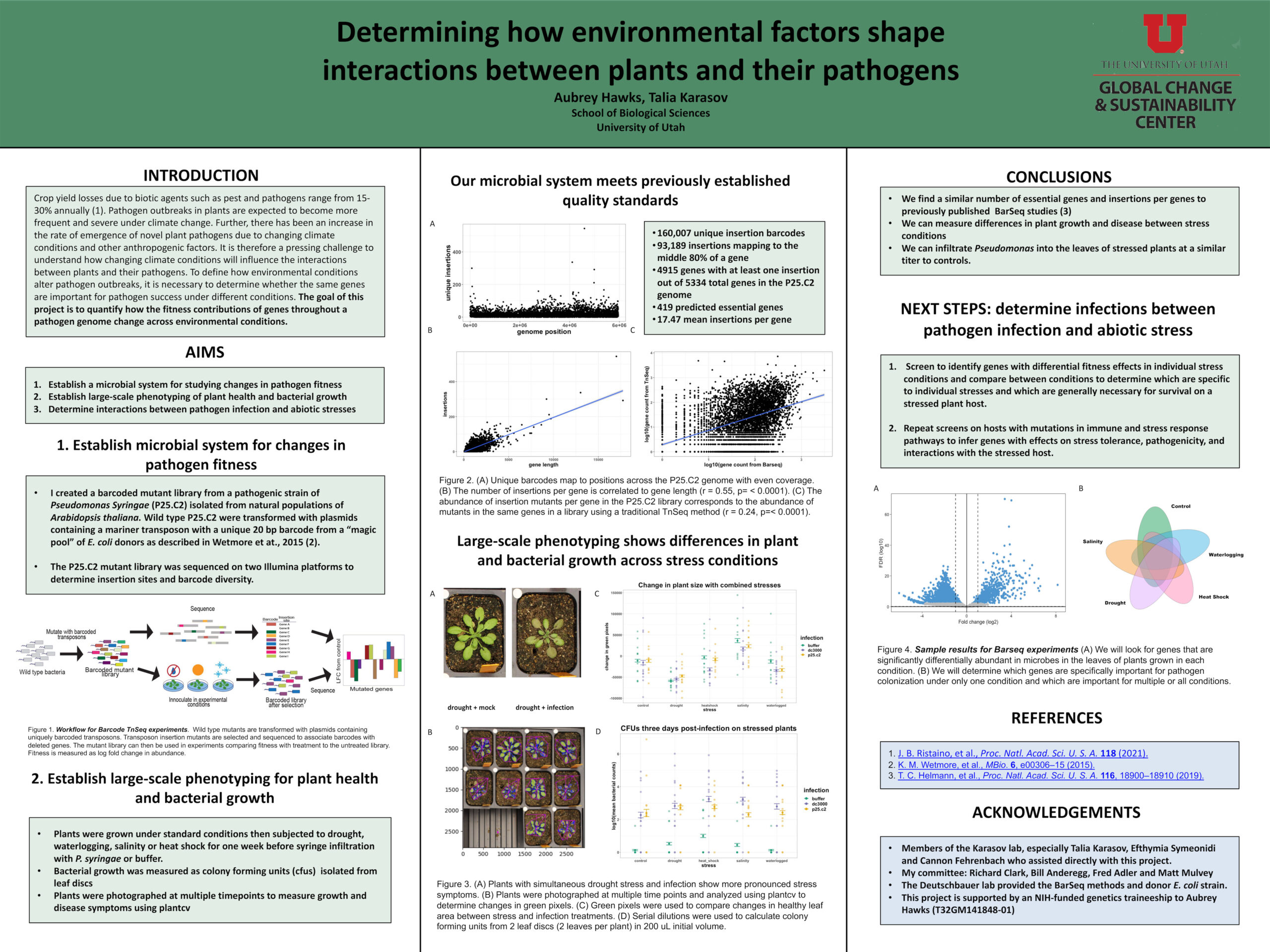Quantifying the fitness of bacterial plant pathogens across environmental stresses
–Aubrey Hawks
[bs_collapse id=”collapse_bb86-afd7″]
[bs_citem title=”Bio” id=”citem_e610-6c22″ parent=”collapse_bb86-afd7″]
I am a PhD student in the School of Biological Sciences working in the Karasov lab. My research focuses on how climate factors impact the genetic interactions between plants and their bacterial pathogens. My goal is to better understand how these interactions shape the trajectory of outbreaks in order to help inform strategies for disease management that are both durable and climate resilient.
[/bs_citem]
[bs_citem title=”Abstract” id=”citem_eca8-96a7″ parent=”collapse_bb86-afd7″]
Environmental changes not only directly influence plant health, but also impact plant interactions with surrounding microbiota, including the proliferation of pathogens. Environmental conditions affect plant susceptibility to pathogens through changes to the regulation of plant stress response pathways, physical interactions between the plant and pathogen and alterations to the plant microbiome. Each of these changes has the potential to alter which bacterial genes allow pathogens to proliferate and cause disease in the plant. To define how environmental conditions alter pathogen diversity and how this influences outbreaks, it is necessary to determine whether the same genes are important for pathogen success under different conditions. We created pools of the bacterial plant pathogen Pseudomonas syringae with barcoded mutations. We will use these pools to test how the genetic requirements for pathogenicity change under a range of stress conditions and better understand how pathogen populations are shaped by environmental stress.
[/bs_citem]
[bs_citem title=”Video” id=”citem_780c-0f71″ parent=”collapse_bb86-afd7″]
[/bs_citem]
[/bs_collapse]

